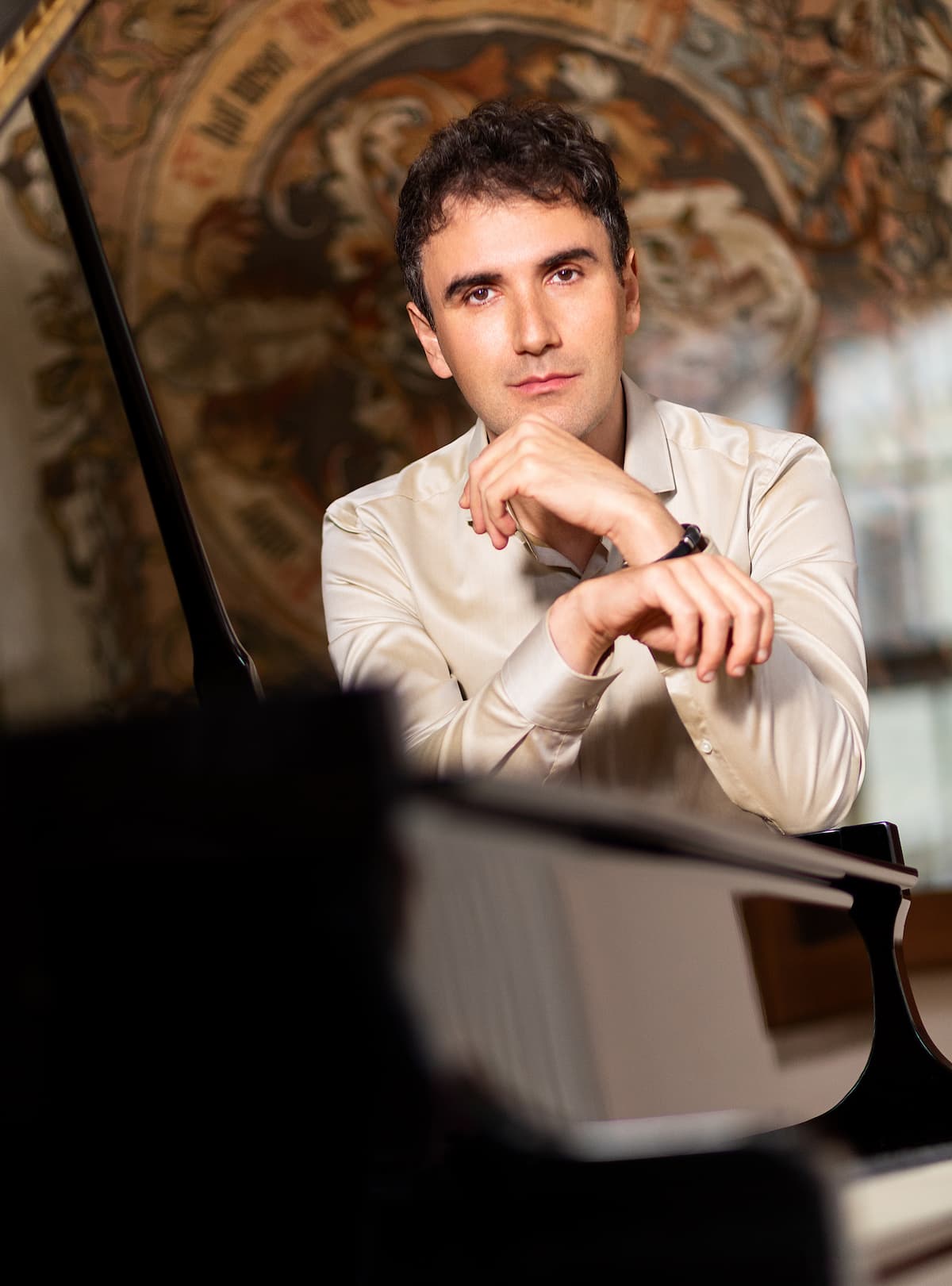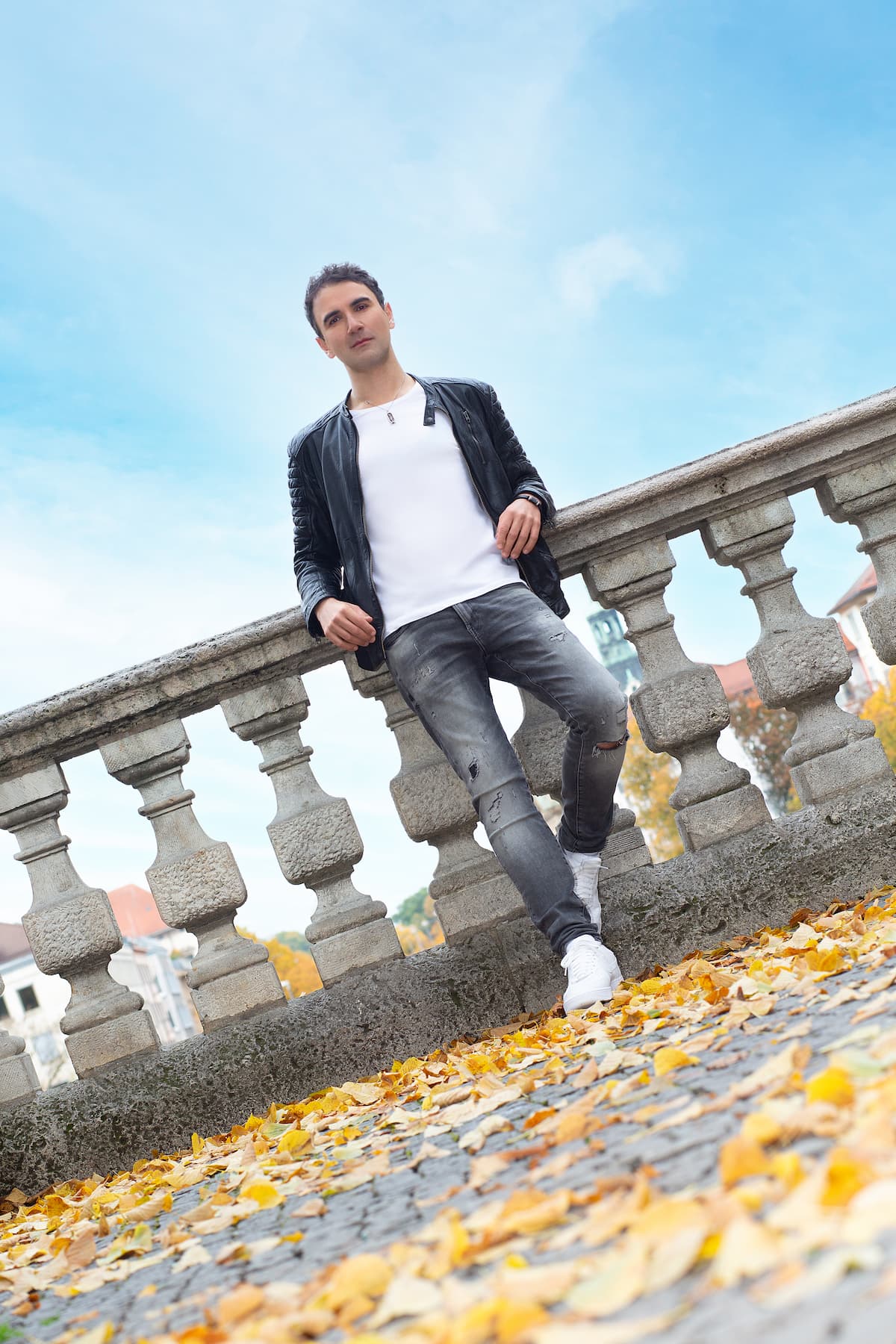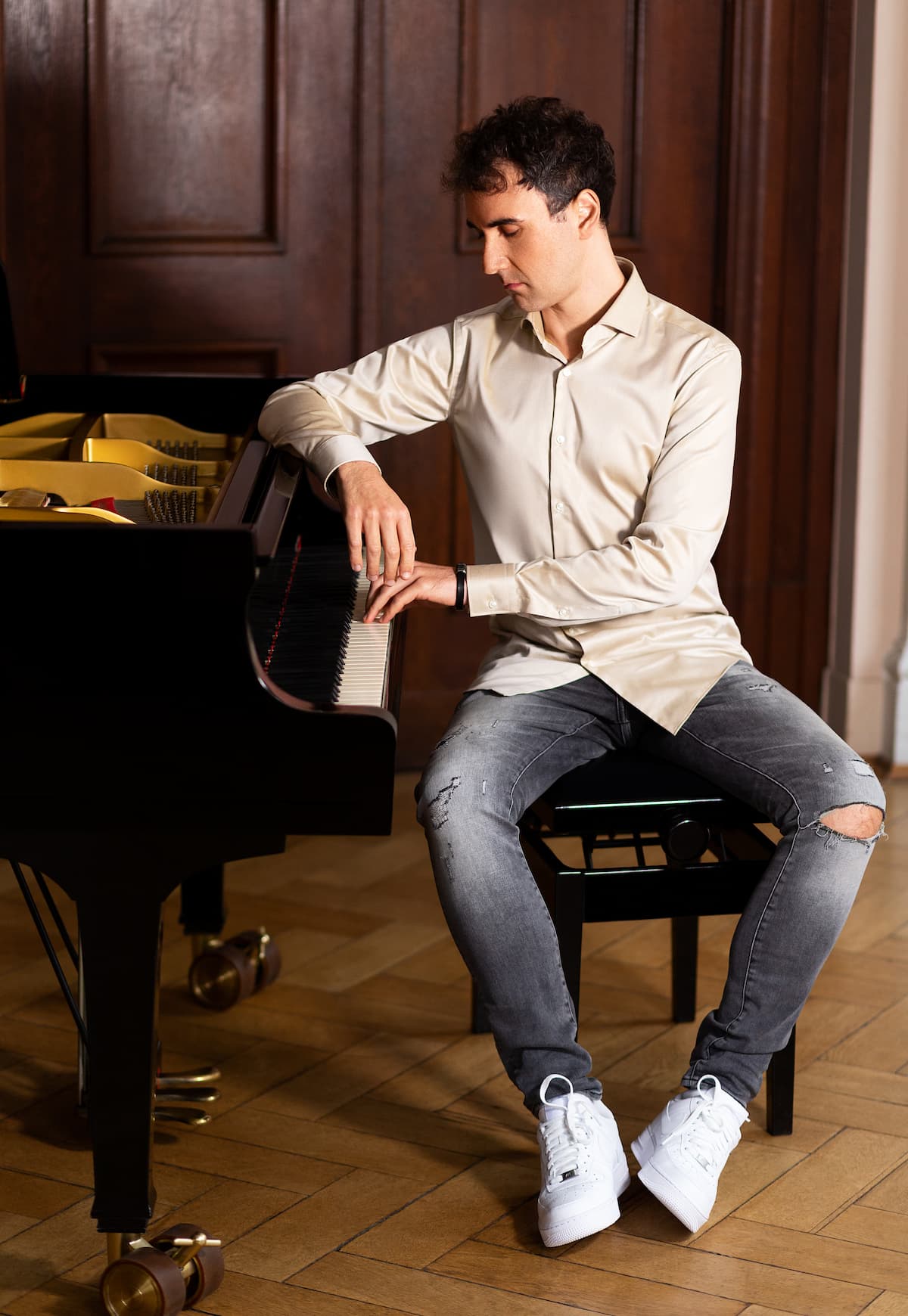‘My Never-Ending Quest for Art’

© vadim-chaimovich.com
If asked to name a YouTube music video with over 200 million views, who would spring to mind? Beyoncé, perhaps? Maybe Ed Sheeran? But…Chopin? A certain recording of his ever-popular Nocturne in E-flat (Op.9/2) has been viewed over 240 million times on the streaming site – and the fingers responsible for this hit belong to our Artist of the Month, Lithuanian pianist Vadim Chaimovich.
Chopin: Nocturne op.9 No. 2
Of course, Vadim is much more than just the face behind a popular YouTube video. An artist of exceptional sensitivity and curiosity, Vadim scooped prizes at international competitions in Germany (Schubert Competition), Italy (Schlern Music Competition), Switzerland (Lugano International) and the USA (Bradshaw & Buono) in his early days, leading to a distinguished career with recitals and appearances across Europe, America and Asia.
Vadim has been based in Germany since 1996, living in Wiesbaden, just outside Frankfurt, and further south in Munich. I talk with him about the influence of the great pianists who shaped his musical approach growing up, and how that manifests itself today, be it searching for new things to say on the concert platform, or delving into new expressive worlds in the recording studio.
Did you grow up in a musical family? How and when did you find the piano?
I began at age five. Actually, no one in my family is a musician, but – as the story goes – I was once caught singing quite clearly in the bathtub when I was about nine months old, and my parents decided that I had the potential to become a musician. When I was about two years old, my parents got me a toy piano as a birthday present. I began to play tunes and popular melodies by ear. Finally, I got a real piano when I was five, and my parents sent me to a local music school.
Who inspired you growing up?

© vadim-chaimovich.com
There are three people to whom I owe much for my professional growth. Tatjana Radovich, my first teacher in Vilnius, was a very attentive pedagogue, an absolutely extraordinary musician and wonderful personality. Such a great combination is very rare and valuable. Essentially, she was the only person who inspired me growing up, and at 13, I already knew that I wanted to become a concert pianist.
I am also very much indebted to two remarkable musicians, both pupils of the legendary Russian pianist Lev Oborin: Lev Natochenny and Peter Rösel. The former taught me to see the musical score as a basis for creative rediscovery and aesthetic reinvention, rather than as something existing out there pre-determined once and for all, some kind of dead body that the musician has to reanimate following strict unchangeable rules, generating its meaning on the basis of some standard approach rather than proceeding from the potential hidden in the score itself.
The latter, Peter Rösel, one of the most significant representatives of the contemporary German piano school, has shown me the crucial role of the formal aspect of the music work: there can be no convincing interpretation without realising the inner structure and the logical connections within the work. Furthermore, to me he has been a living example of what a true artist can accomplish.
Do you have a favourite place to perform? What is your most memorable performance experience?
“Without music, life would be a mistake”, Nietzsche wrote. I have always felt that this is much more than just a beautifully turned phrase. At some point in my youth, I realised that this statement immediately concerns my life.
Already as a child, I felt that classical music was something very earnest, something to be taken seriously and even revered. As I was learning to play the piano, the inexplicable laws of being in music gradually but steadily took possession of my whole existence: the piano taught me solitude, pensiveness and self-criticism.
Nowadays, as a mature artist, I know that those rare moments of revelation which occur on stage are something as true as God and as beautiful as the universe, something you wish so much to stop and share with everyone around you. And when you see tears in the happy eyes of people as they come up to you after another recital to tell you a few warm words or just to shake your hand, you begin to believe that transcendence is possible.
That is why it makes absolutely no difference to me in which country, city or venue I perform. And that is why every performance can become memorable (or not).
Being a concert pianist is not easy: there are days marked in your calendar on which you just must do your best, no matter how physically fit you are or what thoughts and worries torture your soul. You are often alone on stage, “naked” before the audience full of expectations, you cannot put it off or escape.
I must confess that I am not one of those musicians who get used to the concert routine and, sooner or later, come to regard what they do as their ‘job’. No, for me every concert is another battle with myself in my never-ending quest for art.
Schubert: Impromptu No. 3 in G-flat Major, D. 899 (Op. 90)
Describe your relationship to making recordings vs performing live.
Just a few years ago, I discovered a new passion: the recording studio. Glenn Gould, one of my favourite pianists, enjoyed the studio more than the concert hall as he felt that sound recordings create even more opportunities for a two-way conversation between performer and listener. For the meantime, so do I.
In a recording studio, I can experiment with different interpretations without the pressure from a live audience and perfect my performance through multiple takes, which allows for a greater expressivity and satisfaction. The joy of producing high-quality recordings that will be appreciated by listeners for years to come brings a renewed sense of purpose and happiness to me. My new digital album of “Moments Musicaux”, featuring works by Schubert, Moszkowski and Rachmaninoff, will be released in late August by the Italian classical label Halidon.
What do you do in your spare time, away from the piano?

© vadim-chaimovich.com
Well, I would like to mention two things that I enjoy doing when I don’t play the piano: reading and traveling. Arthur Schopenhauer, Thomas Mann, Somerset Maugham, Michail Bulgakov and Hermann Hesse are among my favourite authors. Regarding traveling, “my heart’s in the mountains”, especially in the Bavarian, Swiss and Austrian Alps with their picturesque lakes of cold green crystal-clear water. Roaming the woods in the company of a few close friends can be almost just as entertaining as working on a new interpretation of an early Mozart sonata!
How does it feel to be the pianist featured on one of the most popular YouTube videos of a classical work?
Hmm… Sometimes I feel I am a kitten in one of those social media videos with millions of views! Those kittens are universally loved, they trigger positive emotions and reduce stress. That particular recording of Frederic Chopin’s Nocturne in E-flat Major was one of the encores [in a recital of mine]: if I remember correctly, I was pretty relaxed and in a good mood, and probably allowed myself even more creative freedom than usual.
For sure, there are many different factors that contributed to the success of that viral video with a staggering 240 million-plus views. As a musician, I only want to believe that, at least to some degree, it is also due to the merits of the interpretation.
For more of the best in classical music, sign up for our E-Newsletter




